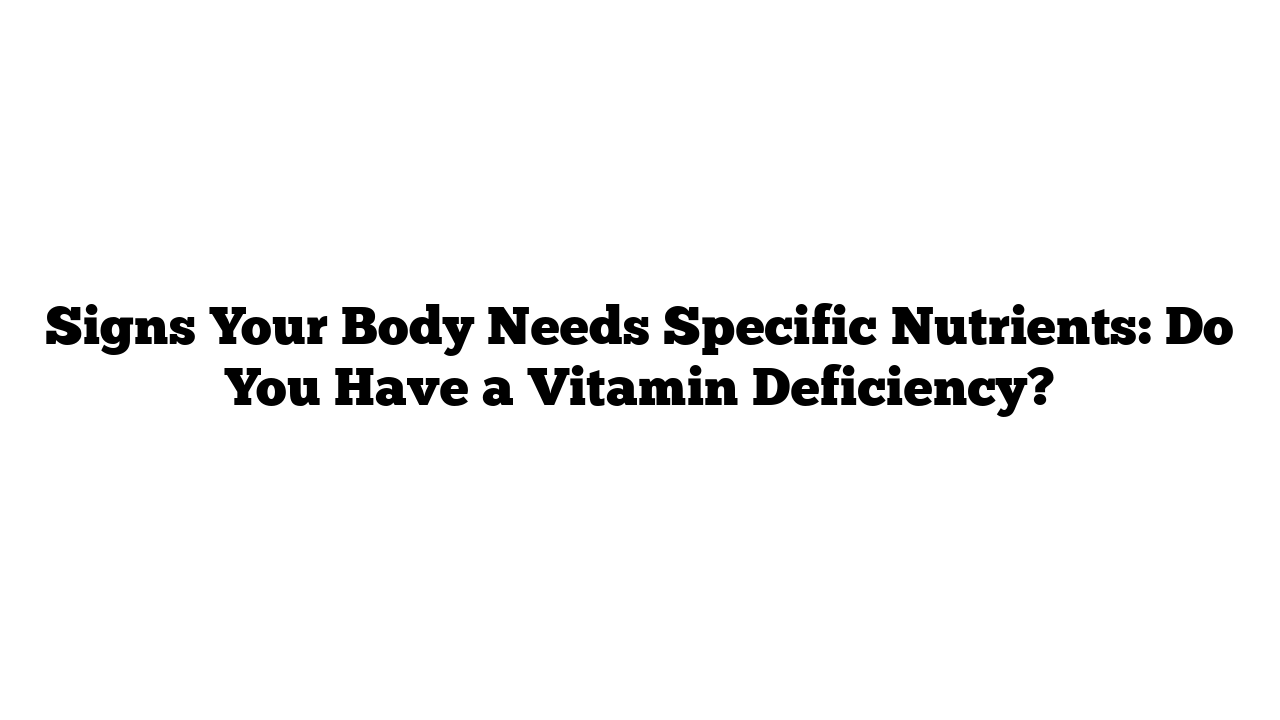Introduction: Are You Getting Enough Nutrients?
Many people assume they don’t need extra vitamins, relying entirely on diet. Yet, if you look closely, you’ll see the majority of people are deficient in vital nutrients like vitamin D, magnesium, and B vitamins. With over half the population consuming ultra-processed foods, nutrient deficiency is common. Here are 21 signs that your body may be signaling for specific nutrients and where to find them.
1. Tingling in Toes
Sign: Tingling in the toes often signals a vitamin B1 (thiamine) deficiency, linked closely to nerve health.
Sources: Pork, liver, eggs, and sunflower seeds.
Tip: For persistent symptoms, consider a fat-soluble B1 supplement.
2. Cracks at the Corners of Your Mouth
Sign: Cracks may indicate a lack of vitamin B2 (riboflavin).
Sources: Liver, red meat, and eggs.
3. Thinning Hair
Sign: Hair thinning may mean a shortage of biotin (vitamin B7).
Sources: Eggs, nuts, seeds, and organ meats.
4. Premature Graying
Sign: Early graying can point to a folate (B9) deficiency, essential for DNA repair and melanin production.
Sources: Leafy greens like spinach and kale.
5. Mouth Ulcers
Sign: Painful sores in the mouth can result from a B12 deficiency, affecting red blood cell and nervous system health.
Sources: Red meat, liver, and clams.
6. Deep Bone Pain
Sign: Deep pain in the pelvis or thighs may mean a vitamin D deficiency.
Sources: Sun exposure and supplements (at least 10,000 IU daily is suggested for maintenance).
7. Heavy Menstrual Bleeding
Sign: Heavy bleeding may be due to low vitamin K1, which assists in blood clotting.
Sources: Dark leafy greens and liver.
8. Heavy Menstrual Cramping
Sign: Severe cramps could indicate a magnesium deficiency, which regulates calcium levels.
Sources: Green leafy vegetables, pumpkin seeds, and sesame seeds.
9. Fibroids
Sign: High estrogen or vitamin D deficiency can contribute to fibroids.
Sources: Vitamin D supplements (20,000–30,000 IU with magnesium and zinc).
10. Eye Twitching
Sign: Twitching under the eye is a common sign of magnesium deficiency.
Sources: Leafy greens, pumpkin seeds, and nuts.
11. Heart Pounding
Sign: Hearing a pounding heartbeat may indicate low potassium levels, often affected by sugar intake.
Sources: Vegetables, bananas, and electrolyte powders.
12. Chronic Cough
Sign: Persistent cough could be due to a calcium deficiency.
Sources: Dairy, Greek yogurt, or calcium lactate supplements if dairy isn’t tolerated.
13. Ice Cravings
Sign: Craving ice is a known sign of iron deficiency, which is especially common during pregnancy.
Sources: Red meat and liver.
14. Low Libido
Sign: Low libido may reflect a zinc deficiency, crucial for hormone balance.
Sources: Oysters, shellfish, and red meat.
15. Hearing Loss
Sign: Hearing loss, especially in older adults, may result from low B12 levels.
Sources: Red meat, eggs, and dairy.
16. Fibrocystic Breasts
Sign: Cystic changes in breast tissue may signal an iodine deficiency.
Sources: Seaweed, shellfish, and iodized salt.
17. Dry, Flaky Skin
Sign: Dry patches near the nose and eyebrows can indicate low omega-3 levels.
Sources: Fish oil and high-quality omega-3 supplements.
18. Muscle Weakness
Sign: Weakness or muscle atrophy may result from a vitamin E deficiency, essential for oxygenation and muscle health.
Sources: Spinach, nuts, and seeds.
19. Fatty Liver
Sign: A choline deficiency often contributes to fatty liver, especially when carb intake is high.
Sources: Egg yolks and liver.
20. Cold Sores
Sign: Frequent cold sores may mean a lysine deficiency.
Sources: Chicken, fish, and dairy.
21. High Lipids
Sign: Elevated lipids may signal a deficiency in niacin (vitamin B3), which helps maintain cholesterol levels.
Sources: Red meat, poultry, and fish.
Building a Nutrient-Rich Diet
Preventing deficiencies involves a balanced diet with nutrient-dense foods. Opt for a mix of lean proteins, leafy greens, nuts, seeds, and lean meats. For further guidance on achieving optimal nutrition, explore our expert-recommended resources.
